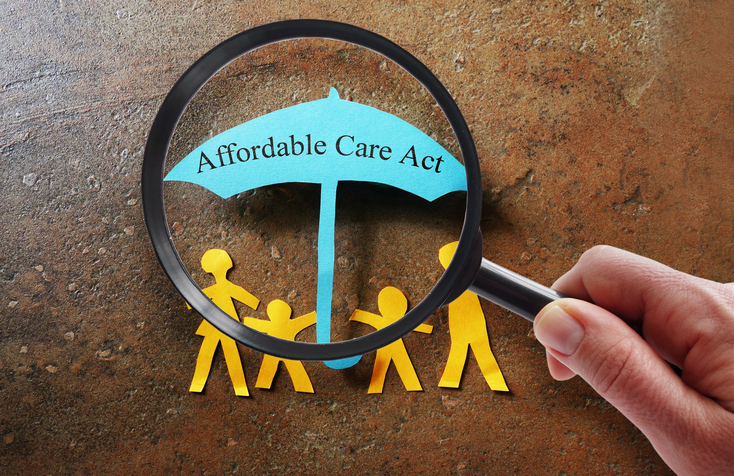Healthcare, pharmaceutical and insurance companies can solve the needs of consumers by drawing inspiration from some of the most innovative companies in the world, both in and outside of the healthcare industry. In this series, we will look at brands that understand the deeper needs and pain points of their consumers—beyond the functional and physical—in order to shine a light on how healthcare companies can create compelling solutions and build powerfully human brands for the good of their patients. Catch up on the previous trends featured in this series: Empathy, Simplicity, Empowerment and Motivation.
Health is personal. Whether it’s your genetics, eating habits or response to medication, your health is a collection of activities and behaviors that are anything but cookie-cutter.
So why is it that so many healthcare solutions are one-size-fits-all? Apparently, everyone is supposed to eat a Mediterranean diet. Supposedly, all of us should hit the gym 3 times a week. And allegedly, everybody needs to take aspirin to prevent heart disease. Can these generalized healthcare recommendations possibly take into account all the nuance and complexity that make us who we are?

With the Rise of AI, What IP Disputes in Healthcare Are Likely to Emerge?
Munck Wilson Mandala Partner Greg Howison shared his perspective on some of the legal ramifications around AI, IP, connected devices and the data they generate, in response to emailed questions.
Tailored solutions that respect our individuality seem too few and far between, and professionals who take time to understand patients deeply are much too rare.
In a recent study conducted by Prophet, 35% of patients surveyed said that they feel “doctors largely provide an impersonal service and have no time for their patients.” Patients clearly desire personalized care, but struggle to find it. Customization of healthcare offers a clear way for brands to engage more deeply and effectively with the people they serve.
In order to understand how customization can be applied to healthcare in winning ways, its important to look a who’s doing it well – both inside and outside the industry.
Customization in action
To observe how customization can lead to more effective solutions, we can take inspiration from a century-old delivery service. UPS’s My Choice home delivery service lets consumers choose when and where their packages are delivered, offering them greater transparency, control and customization. In the past, package delivery has been very inconvenient for customers, with inflexible timing and location options. UPS created My Choice to allow previously unseen customization to the delivery system. Flexible controls allow the customer to choose where and when the package is delivered, while transparent tracking and clear and proactive notifications via text, email, or phone allow greater convenience and awareness for the consumer.
The control, customization, and efficiency of My Choice is a central part of how UPS is growing. As of October of last year U.S. operating profit increased 7.8% to $1.3 billion, a direct result of increased productivity.
Recently, wearables have emerged as a customization approach celebrated by health-focused brands, like the Nike Fuel Band and the FitBit. Yet, one company has taken these health trackers to a new level of personalization. Benecure harnesses the data from these wearables to customize programs that help users manage chronic conditions. Using the information captured by the wearable, Benecure evaluates how closely the user is following a physician’s recommended instructions. The more closely the user adheres to suggested activities, the closer they get to receiving rewards, like free gym sessions or fresh food deliveries. Linking day-to-day personal behaviors to pre-determined healthcare goals enables users to feel a sense of control through the customized application. Benecure goes a step beyond the basic wearable to deliver a clearer, more personalized path to wellness.
While Benecure is new to the healthcare innovation space, it shows significant potential for growth. In 2014 it was selected for a healthcare accelerator in its hometown of Chicago, enabling its continued success and funding. Additionally, Benecure has recently joined MATTER. a healthcare innovative hub through which it will expand its network and influence, establishing the brand in the industry it is actively a part of creating.
Why customization matters
There are three reasons we believe customizing healthcare solutions is a more meaningful way to engage with patients:
Customization is personal
When patients are a part of customizing their healthcare, whether it’s in sharing something personal to inform a procedure or being given options for medical intervention, patients feel their unique perspective is being taken into consideration. This makes people feel more comfortable and open to taking the necessary steps to improve their health.
Customization means control
For patients, the healthcare industry can feel uncomfortably polarized. On the one side, you have average people seeking healing. On the other, you have healthcare professionals who wield all the expertise and information that leads to it. Customization bridges this gap and brings the patient into the process of finding solutions for their health issues. When people feel in control of their care, they will also feel more confident and engaged.
Customization creates data
In order to customize a healthcare solution, you need to get personal. And you can learn a lot when a patient shares personal information. The better healthcare professionals understand their patients, the more knowledge they’ll have to inform patient relationships, medical recommendations and professional research. All of which enables better care.
Customization doesn’t just mean picking the color of your new iPhone. It’s a powerful tool for getting to know the patients you serve and adjusting to their unique situation. Customization in healthcare enables professionals to understand their patients and provide care that is more personal, effective and informative.














